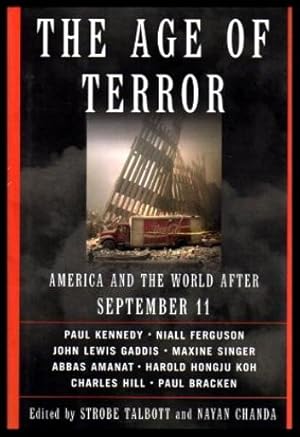Momentous events have a way of connecting individuals both to history and to one another. So it was on September 11. Even before more than 4000 people died in less than two hours, there were farewell messages from the sky. In their last minutes, doomed passengers used cell phones to reach loved ones. A short time later, office workers trapped high in the burning towers called spouses, children, parents. Never had so many had the means to say good-bye. During the hours afterward, the survivors scrambled to make contact with family and friends. "Are you all right?" they asked. As the enormity of it all began to sink in, the question hanging in the air was, Were we all right? Since September 11, many have noted a humbling irony: the more time we'd spent in the old world and the better we thought we understood its organizing principles, the less ready we were for the new one. Suddenly, familiar terms and concepts were inadequate, starting with the word terrorism itself. The dictionary defines it as violence, particularly against civilians, carried out for a political purpose. September 11 certainly qualified. But American's earlier encounters with terrorism neither anticipated nor encopmassed this new manifestation. Commentators instantly evoked Pearl Harbor, that other bolt-from-the-blue raid, sixty years before, as the closest thing to a precedent. But there really was none. This was something new under the sun.
Nayan Chanda is the director of publications at the Yale Center for the Study of Globalization. He was editor and editor-at-large of the
Far Eastern Economic Review from 1996 until 2001, and for 22 years before that he was a correspondent of the magazine. He is the author of
Brother Enemy: The War After the War and co-author of over a dozen books on Asian politics, security and foreign policy.
Strobe Talbott is the director of the Yale Center for the Study of Globalization. He was Deputy Secretary of State from 1994 until 2001. Before joining government, he was a journalist for twenty-one years at Time magazine. He is the author of six books on arms control and U.S.-Soviet relations, and his The Russia Hand: A Memoir of Presidential Diplomacy will be published in the spring.
